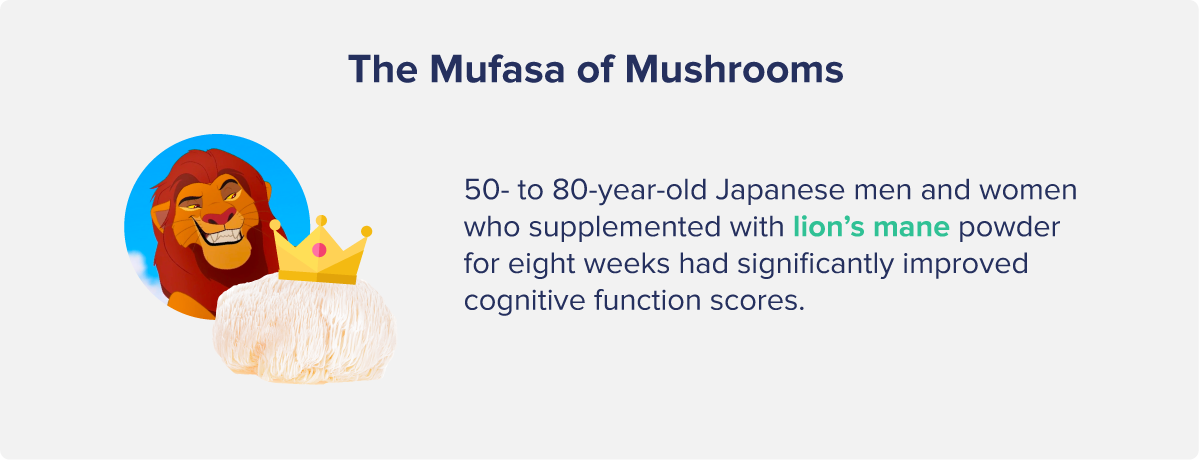Talk to a Registered Dietitian and use INSIDER20 for 20% off!
Talk to a real Dietitian for only $99: Schedule Now
Evidence Based Research To fulfill our commitment to bringing our audience accurate and insightful content, our expert writers and medical reviewers rely on carefully curated research.
Read Our Editorial Policy
From culinary or therapeutic to hallucinogenic or toxic, mushrooms have quite the range (even more so than cauliflower)!
But when it comes to these fantastic fungi, functional or medicinal mushrooms are quite different than the little ones sliced atop your vegetarian pizza.
Humans have been consuming every type of mushroom for thousands of years (RIP to all of the adventurous souls who helped us discover which ones are poisonous).
But research has only recently caught up to their health benefits.
While many common grocery store mushrooms certainly have some nutritional advantages, the real power lies with medicinal (AKA functional) mushrooms—especially when it comes to brain health.

A recent media darling is the lion’s mane mushroom—yes, its name originates from its likeness to the long mane of a lion… if Mufasa had white hair, that is.
Lion’s mane mushroom (Hericium Erinaceus, if you prefer Latin) is thought to be a brain power superstar, benefiting several aspects of the central nervous system.
Now, research published in the Journal of Neurochemistry this month finds that bioactive compounds in lion’s mane called erinacines boost the growth of vital proteins called neurotrophins.
Neurotrophins are nerve growth factors that promote brain cell survival, growth, and communication—so they’re pretty important.
Brain-derived neurotrophic factor (BDNF) is one well-known neurotrophin that was elevated by lion’s mane extract, which is critical for cognition and neurogenesis—the growth of new neurons.
We know that dysfunctional BDNF activity is implicated in Alzheimer’s disease, Huntington’s disease, and other neurodegenerative disorders.
So it’s possible we may soon be using mushrooms instead of medication to prevent or halt the progression of these debilitating conditions.
While this study didn’t look at the effects in humans, others have.
In one clinical study, 50- to 80-year-old Japanese men and women who supplemented with lion’s mane powder for eight weeks had significantly improved cognitive function scores.
All in all, medicinal mushrooms are definitely having a moment—and the market for them is rapidly growing (to the tune of a 10.8% annual increase from 2022 to 2030).
Move over, portobellos—lion’s mane is the new mushroom in town.